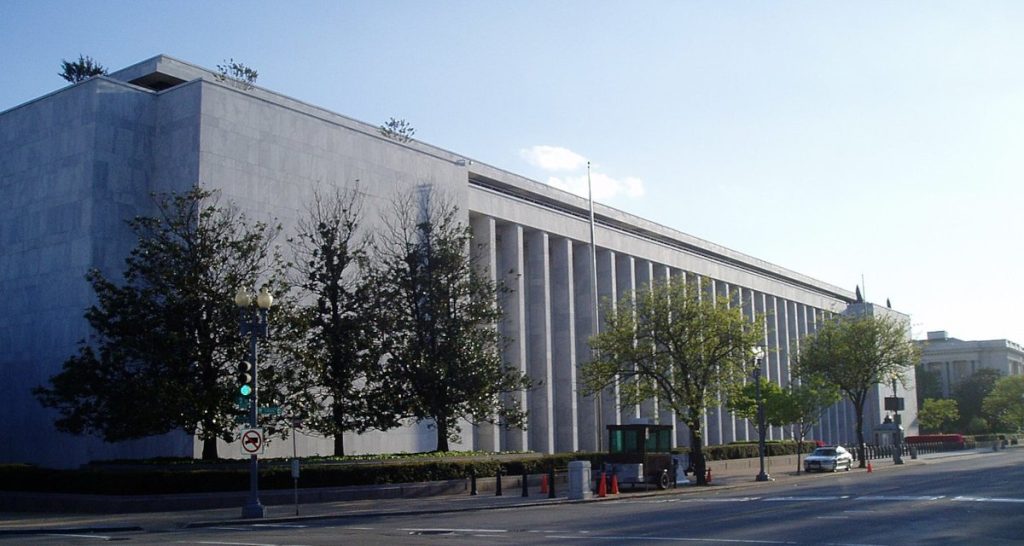
Washington, D.C., home to the James Madison Memorial Building, which houses the U.S. Copyright Office. Photo Credit: UpstateNYer
Ongoing Battle for Control of the U.S. Copyright Office: Shira Perlmutter Seeks Summary Judgment Amid Political Tensions
The contest over leadership and authority within the U.S. Copyright Office continues to intensify. Recently, Shira Perlmutter, the former head of the Copyright Office, has filed for a swift, high-priority summary judgment, while the current administration under former President Trump has publicly opposed efforts to accelerate proceedings, particularly regarding the proposed “rapid-music schedule.”
This development may seem unexpected given the court’s latest ruling. When the judge declined Perlmutter’s request for a temporary restraining order, the court also advised the parties to submit a joint schedule for briefing on whether a preliminary injunction should be granted, a process we reported on earlier this week.
In response, Perlmutter’s legal team has requested the court to approve an expedited schedule for the summary judgment phase, emphasizing the urgency of resolving the matter promptly. The former U.S. Copyright Office director argued that “a swift resolution is critical for both the parties involved and the public interest,” noting that the management of the Copyright Office and the Library of Congress remains uncertain until the legality of the current administration’s actions is clarified through judicial review.
Perlmutter’s team advocates for a timeline aiming for a final judgment by June 5, with responses from the defendants due by June 12, and a subsequent reply from Perlmutter four days later. If an expedited process isn’t feasible, they request the court to at least set a schedule for preliminary injunction proceedings, as outlined in their legal filings.
Political Opposition to Accelerated Proceedings
The Trump administration has opposed the push for a rapid schedule, arguing that there is no pressing need to rush the case. In a formal submission, the Justice Department stated, “There is nothing inherently urgent about a factual dispute remaining unresolved until a case is decided on its merits.” They emphasized that such delays are typical in litigation and that the court’s previous denial of a temporary restraining order indicated that Perlmutter had not demonstrated irreparable harm warranting emergency relief.
The DOJ further argued that the court should not entertain Perlmutter’s request for a fixed timetable for preliminary injunctions, asserting that the court already provided her with an opportunity to present her case. They contended that her filing for a preliminary injunction was premature, given the court’s earlier finding that she had not shown the necessary irreparable harm.
Next Steps and Potential Outcomes
According to the Justice Department’s proposal, the case could proceed with a summary judgment deadline set for June 5 or later, followed by a three-week window for the defendants to respond, and a final decision within a few weeks thereafter. Perlmutter’s team would then have additional time to reply, with the defendants’ response due approximately two weeks later.
As of now, the court has not issued a ruling on these competing schedules. Given the complexity and the ongoing nature of the dispute, it’s likely that the case could extend over several weeks or even months, especially if a full factual hearing becomes necessary. The proceedings may also lead to the appointment of permanent leadership for the Library of Congress and the Copyright Office, raising further questions about the future direction of copyright policy and administration in the United States.

